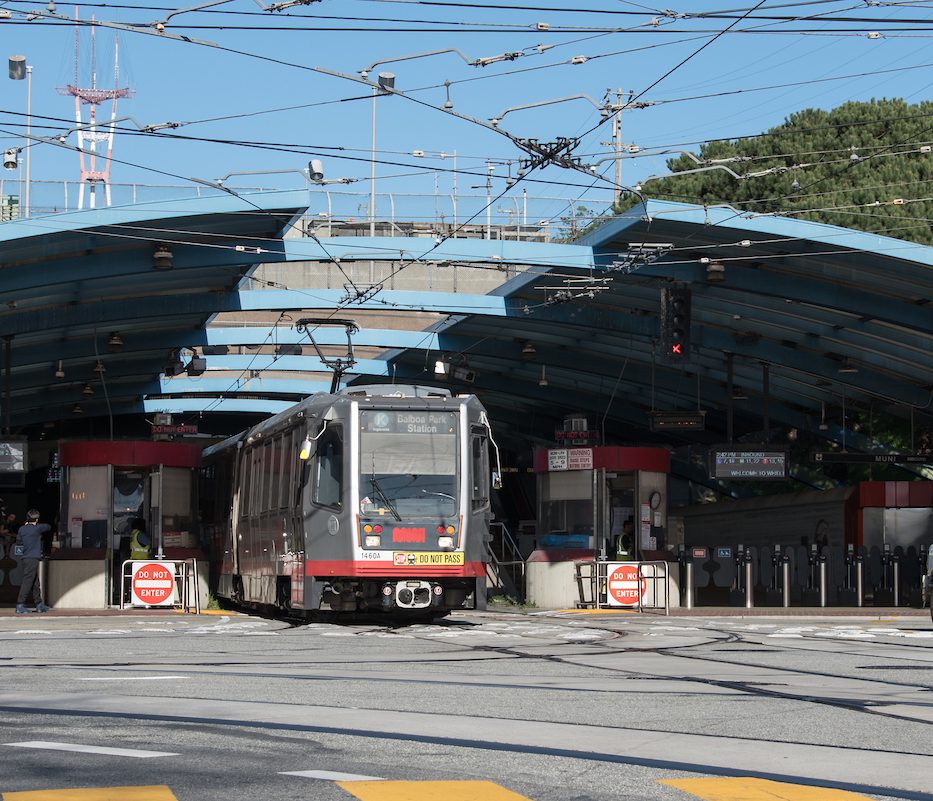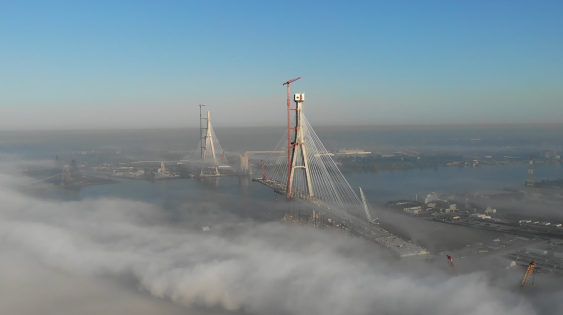Editor's Note: As readers are probably aware, the latest budget proposals coming from Sacramento omit emergency funding for transit agencies. Streetsblog joins the chorus in urging lawmakers to fund transit. The San Francisco Transit Riders has put together a form letter/action page. Be sure to write in, call, and make it known that you want the Bay Area's transit funded. Why is this important? Here's a letter from San Francisco Mayor London Breed that sums up the situation:
OFFICE OF THE MAYOR LONDON N. BREED SAN FRANCISCO
May 24th, 2023
The Honorable Phillip Ting
Chair, Assembly Budget Committee
State Capitol, Room 6026
Sacramento, CA 95814
Dear Assemblymember Ting,
In 19 days, the Governor and State Legislature will adopt a budget that determines whether San Francisco and the greater Bay Area has a future with public transportation – or doesn’t. Although I am writing as the Mayor of San Francisco, this message is on behalf of all those in this city, the entire Bay Area, and the millions of people across the state who depend on public transportation to live and work and breathe clean air.
The once-in-a-century global pandemic has left our transportation systems, downtowns, and neighborhoods in a state of massive transition, yet despite these changes it is certain that San Francisco and the Bay Area need public transportation as much as ever. Kids rely on transit to get to schools, seniors and San Franciscans with disabilities rely on transit to get groceries, low income families rely on transit to get to work. The Bay Area is one region and one job market, and is kept alive by the transit agencies that cross city boundaries every day to get almost a million students, workers, families, and seniors where they need to go.
California is poised to overtake Germany as the fourth largest economy in the world, and the San Francisco Bay Area accounts for over three quarters of the market capitalization of all publicly traded companies in the State. We are an economic engine for the state but we cannot continue to thrive without public transportation. The Bay Area’s transit system is essential to achieving the ambitious greenhouse gas reduction targets the state has embedded into its climate goals and is necessary to support the hundreds of thousands of new housing units that the region must build over the next decade.
I am calling on the State Assembly to provide a revised budget that keeps Bay Area transit agencies running while ridership rebounds from the pandemic and to avoid massive service cuts. It is in the Assembly that the future of public transit in California now lies. I urge the Assembly and the Assembly Budget Committee to do what is right for the millions of Californians who use and rely on public transit every day.
Supporting transit operations in this budget determines whether our downtowns thrive or die, whether our economy is strangled or supported, whether our outer neighborhoods are isolated or integrated into the region’s labor market and culture, and whether some of those San Franciscans who are struggling most can go about their daily lives. The current budget proposals pending in the Assembly do little to save transit or make it better. In fact, it almost ensures that it will collapse. It leaves a hole of $1.7 billion for the Bay Area alone. I don’t want to imagine the Bay Area without BART and Muni– do
you?
As Mayor of San Francisco and a leader in the Bay Area region, I cannot support the current budget proposals in Sacramento that will send Muni, BART, and Caltrain into a death spiral. Instead, I support the following changes that will align the California Budget with our alleged values to showcase what a vibrant, climate-friendly economy looks like in a state that supports a safety net and economic supports for kids, seniors, and low-income people:
- California has $1.7 billion of excess, unprogrammed federal funds from President Biden’s Infrastructure Investment and Jobs Act (IIJA) that would otherwise go into funding highways. President Biden himself has encouraged states to repurpose this money to support transit operations. California must use a portion of this excess one-time highway money to avoid massive public transit service cuts.
- Cap-and-Trade Auction proceeds have increased, which means that there is over $700 million in discretionary Greenhouse Gas Reduction Funds available. The State has committed to double transit ridership, and needs to do so to meet its climate goals. The Greenhouse Gas Reduction Fund is intended expressly to support transportation options that improve affordability and access to key destinations while reducing greenhouse gas emissions. The state should prioritize using Cap-and-Trade Auction funds to avoid massive service cuts to public transit.
- The State must distribute any transit operations funds in a way that doesn’t unfairly disadvantage San Francisco, the Bay Area and our transit riders. Any additional transit operations funds should be distributed by the State in a way that goes to where it is needed most to avoid massive transit service cuts that disproportionately impact the State’s most disadvantaged riders.
We have an obligation to serve Bay Area residents and workers. We must survive this exceptional moment, and we cannot do that without support from the State.
Sincerely,
__________________________
London N. Breed
Mayor, City and County of San Francisco
***
Again, here's that form page to contact Phil Ting.






